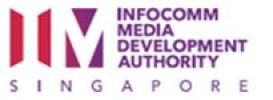- Mahdi Zain
- Siti Musfirah Jamal
- Si Ying Lim
- Nancy Johanne Sundberg
- Sean Doral
- Célia Pellet
Intermediate
Event Organizer(s)


Description
Delivered from the perspective of a small state and targeted at Director-level and above candidates from Forum of Small States (FOSS) countries involved in digital policymaking, this training course will share policy, regulatory and economic development approaches to digital transformation for a digital ready future. Referencing relevant examples from Singapore as well as other small states, it will focus on how small states can maximise opportunities in the digital economy (such as in the areas of data, digital public goods, and emerging technologies) while mitigating the accompanying risks. The training course will also explore how governments can work together with the private and people sectors.
With the support of the government of Singapore, participation is provided free of charge for selected applicants, including flights, accommodation, meals, and other organized activities for a comfortable and immersive learning experience.
With a maximum cohort size of 30, the target audience are senior-level* government officials from small states working in national regulatory authorities overseeing digital and communications sectors.
*approximately Director-level and above
Subject to approval by IMDA and ITU, this training course is open to senior-level policy makers and regulators from small states involved in digital policy-making who are interested in architecting a digital-ready future.
Upon completion of this course, participants will be able to:-
- Explain the role of government in enabling a digital-ready future for small states.
- Describe the potential and risks of AI and Emerging Technologies for small states.
- Facilitate the technology ecosystem to support innovation in the digital economy.
- Apply best approaches to promote industry and social programmes for enhancing digital connectivity and connect the unconnected to build inclusive digital societies.
- Build a secure and resilient digital environment.
Face-to-face over 5 full days, the training course will be conducted through a mixed-format of site visits, sharings, presentations and classes, which would include speakers from senior policymakers from the Singapore government and a speaker from the ITU. Tentatively, this may include:-
- Four to six in-person lectures per module – 1.5 hours each to facilitate knowledge transfer.
- Two panel discussions – 1.5 hours each at the beginning and end of the training course to facilitate knowledge transfer in an interactive setting.
- Three group reflections – 1.5 hours each to set learning goals, check-in on learning progress, and wrap up.
- Three evaluation sessions– Multiple-choice quiz at the end of each module. The questions will be evenly distributed to cover all three module topics, with 5 questions dedicated to each learning outcome, ensuring thorough coverage. To enhance the variety and challenge, the quiz includes both Multiple Choice, Single Answer (MC-SA) and Multiple Choice, Multiple Answer (MC-MA) formats. Specifically, at least 25% of the questions will be MC-MA, requiring the selection of multiple correct answers. Additionally, the order of the questions is randomized to prevent predictability and encourage a more robust evaluation of the participants' understanding.
- Site-visits – To innovation centres and or labs with live demonstrations to facilitate hands-on learning
- Pre-reading materials – To be posted on the portal prior to each day.
- Supplementary materials – Where applicable, supplementary materials will be distributed through the portal for further reading.
Participants will be assessed by way of online quizzes via the ITU Academy portal. Attendance and active participation throughout the training course, which will be recorded through ITU Academy, as well as the submission of the training course evaluation form is a mandatory condition for certification.
A total score higher than 70% is required to obtain the ITU certificate.
Module 1 - Governance: Laying the foundation for a Digital Future – pursuing growth in the digital economy
Module 2 - Innovation: Creating a future-ready digital ecosystem and infrastructure
Module 3 - Inclusion: A future for all, leaving no one behind
Closing - Imagination: Architecting a common digital future











